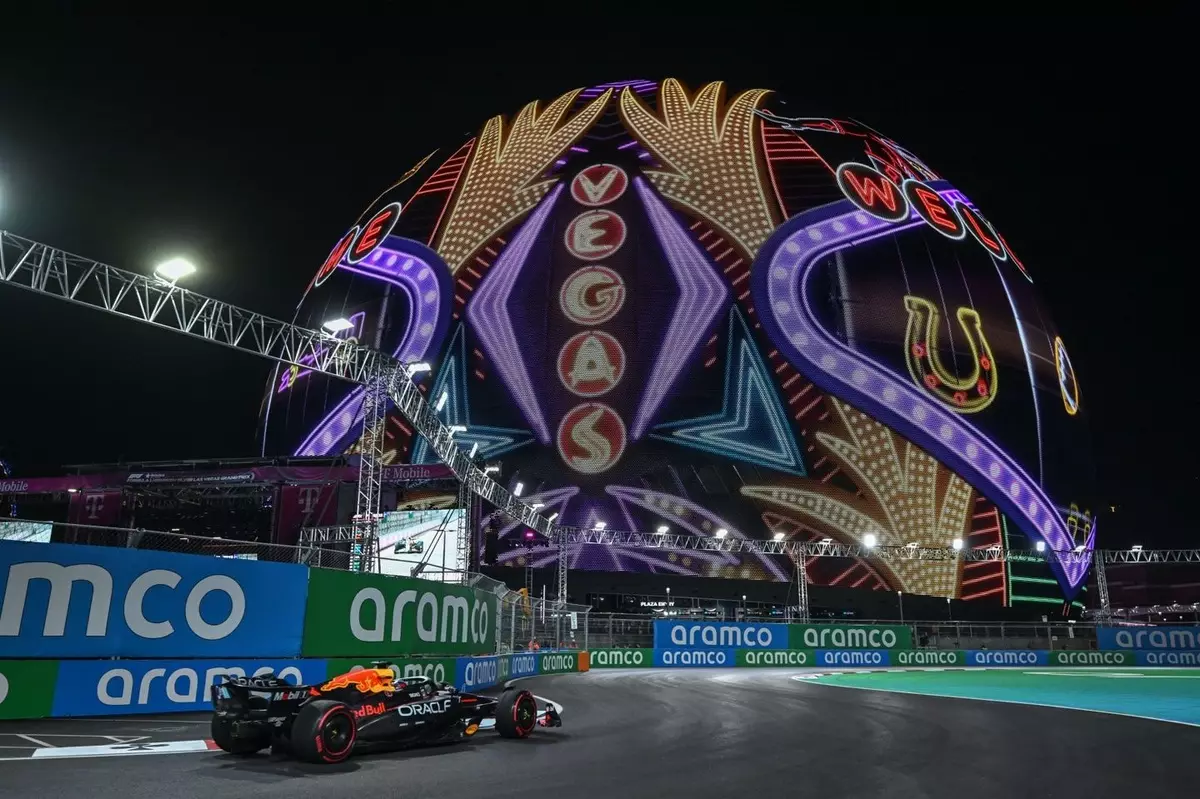The Las Vegas Grand Prix is poised to make a significant change in its scheduling for the 2025 Formula 1 season, shifting the race start time to 8 PM local time. This adjustment, contrasting sharply with the previous two iterations that commenced at 10 PM, is strategically aimed at enhancing audience engagement both locally and globally. This decision reflects not just a logistical necessity but also a calculated response to feedback and evolving viewer preferences.
The shift to an earlier start time aligns the Las Vegas Grand Prix with other popular night races in the F1 calendar, like those in Jeddah and Singapore, which are also set to kick off at 8 PM. This decision strategically benefits viewers on the US East Coast, where late-night viewing of the Grand Prix has been challenging. Previously, fans endured watching the race in the early morning hours; with the new time, they can enjoy the event in a more favorable evening slot.
This adjustment aims to draw in a larger audience and engage with key media outlets on the East Coast, which is crucial for maximizing visibility and coverage. The appeal of F1 is not solely reliant on the thrilling races; engagement from local markets plays a pivotal role in its ongoing growth and popularity. With an approximately 4 AM start time for viewers in the UK, the new schedule provides a balance that enhances convenience and accessibility for a transatlantic audience.
The Las Vegas Grand Prix made its return to the F1 calendar in 2023 after a 41-year hiatus, and both the initial and subsequent races faced logistical challenges. One of the most notable incidents during the 2023 race was the chaotic aftermath of a loose water valve cover that significantly delayed track preparations. The operational hiccups of previous years have undoubtedly provided valuable insights, leading to the scheduling change.
Incorporating lessons from these experiences, the 2025 start time aims to minimize disruption for Las Vegas itself, which exits from under the shadow of road closures impacting the city, especially along the renowned Las Vegas Boulevard. Historically, the late-night start has necessitated substantial street closures beginning on Thursday, a situation that could lead to frustration for both city residents and businesses. By moving to an 8 PM start, the organizers may reduce such conflicts, maintaining the city’s vibrancy while hosting a world-class event.
The 2025 schedule is particularly interesting as it shifts several races, including those in Bahrain and Saudi Arabia, to later in the season due to the overlap with Ramadan. This creates a unique juxtaposition within the calendar. As the season opens with the Australian Grand Prix at 3 PM local time—marking a return to its traditional scheduling—there is an opportunity for fans to enjoy a broader spectrum of race times and conditions.
Particularly for the Las Vegas Grand Prix, this is a strategic move amidst other competitive events and regions, further positioning it within an elite framework of global motorsport. By having the race on a Saturday night, more spectators can partake in the celebratory atmosphere that is synonymous with Las Vegas, reinforcing the destination aspect of the event.
The organizers’ optimism reflects a significant commitment to enhancing the overall experience for fans. A spokesperson noted that the timing decision stems from feedback and a desire to provide fans ample opportunities to explore all that Las Vegas has to offer during the event weekend. This strategic engagement initiative is essential as it aligns with modern trends that prioritize the fan experience beyond the mere act of watching a race.
As the Grand Prix gears up for its future, it is imperative to consider the ramifications of changes like these on businesses and residents in the area. Clear communication regarding road closures and event logistics will be essential, ensuring local stakeholders are kept informed and engaged.
The Las Vegas Grand Prix’s new start time is emblematic of F1’s responsiveness to market signals. By recalibrating its scheduling approach, the event aims not just for sporting success but also for enriching the fan experience, fostering community engagement, and maximizing media coverage—a multifaceted strategy that could very well redefine the race’s position in the broader F1 landscape.


Leave a Reply